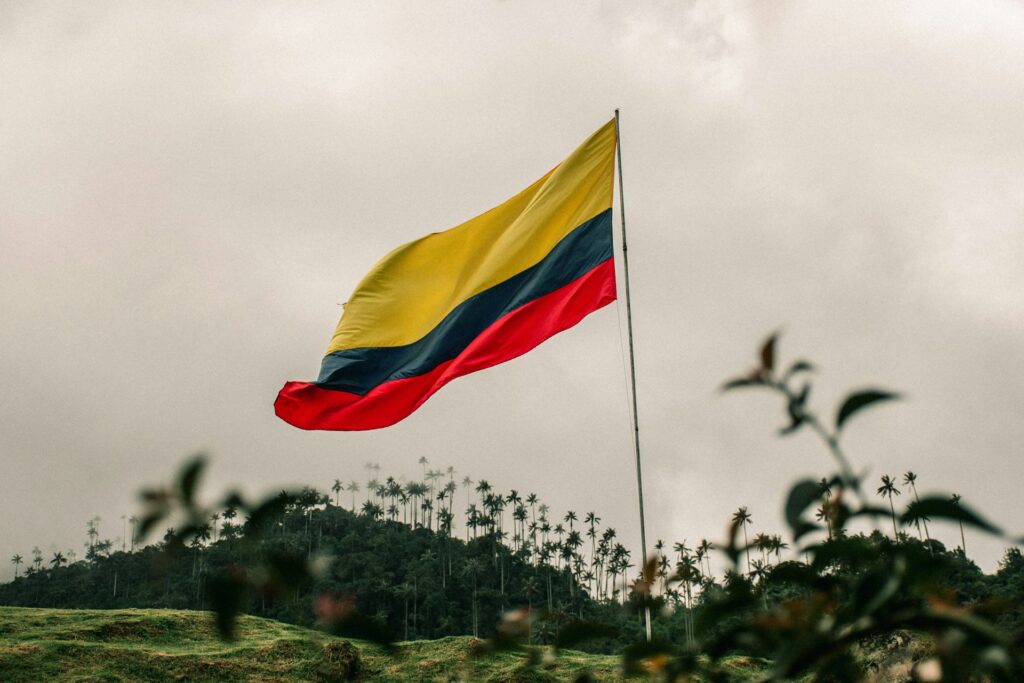A new geopolitical order has been promoted by and through transnational anti-gender mobilization. These support networks are not unrelated to the close ties that European far-right leaders maintain with the Russian political establishment.
In the Cold War period, characterized by the geopolitical divide between the West and the East, the notions of capitalism, liberal democracy, and freedom played an essential role in the arguments of alleged Western superiority against the communist East. However, as Joan Scott‘s recent book Sex and Secularism reminds us, the claims of Western progressiveness were also occasionally informed by another related concept – that of sexual freedom. The Cold War narratives of sexual freedom, argues Scott, paved the way for the post-Cold War discourses of gay rights and feminism as one of the critical signs of the global superiority of the geopolitical West.
The sedimentations of the West/East divide based on the idea of sexual freedom has particularly been visible in the enlarged European Union, where the presence of political homophobia and attacks on Pride Marches in some Eastern European countries were often interpreted as signs of a divide between Eastern Europe and the “real Europe.”
The ongoing transnational anti-gender and anti-LGBTQ mobilization considerably disturbs the asymmetrical symbolic divide inherited from the Cold War period.
While scholars have long argued against these generalizing ideas about the West and the East, expressing the need for more nuanced understandings of the operation and location of homophobia, the recent transnational mobilization against the LGBTQ rights and the concept of gender across Europe and beyond shed the new light on these issues.
As I will show below, by generating the links across the symbolic divide between West and East, the ongoing transnational anti-gender and anti-LGBTQ mobilization considerably disturbs the asymmetrical symbolic divide inherited from the Cold War period.
Anti-gender mobilization in Europe: Collaborations across East/West divide
Starting from the early 2010s, Europe has seen an increasing mobilization against the changes in LGBTQ people’s status, often accompanied by demands for a complete rejection of the concept of gender.
There has been resistance against the potential opening of the institution of marriage to include same-sex couples in many European states. Countries ranging from France, Poland, and Italy to Germany, Slovenia, Croatia, and Finland all saw actions such as petitions, mass protests, and referendums against marriage equality.
Due to country-specific differences in referendum legislation, only the Slovenian and Croatian referendums reached their goal of stalling the re-definition of marriage that would include same-sex couples. However, regardless of the mixed success, anti-LGBTQ and anti-gender actions managed to gain significant local visibility and galvanize broader mobilization against more inclusionary marriage and family definitions.
The strong transnational character of this mobilization is reflected in a shared discursive repertoire, especially in the use of affirmative “pro-family” rhetoric and resistance to the concept of gender, common visual representations, and similar strategies applied in different contexts, from Europe and Russia to North and South America. Simultaneously, the transnationality of the anti-gender movement is also produced through direct interactions, collaborations, and gatherings of its key actors.
The strong transnational character of this mobilization is reflected in a shared discursive repertoire, especially in the use of affirmative “pro-family” rhetoric and resistance to the concept of gender, common visual representations, and similar strategies applied in different contexts, from Europe and Russia to North and South America.
One of the notable examples of a transnational collaboration among anti-gender activists in Europe is the petition Mum, Dad & Kids – European Citizens’ Initiative to protect Marriage and Family. Launched in 2015, the petition called for the adoption of the EU regulation that would define marriage as a “legal union between one man and one woman.”
Although it failed to collect a required number of signatures across the EU in a given time, the initiative brought together many leading anti-gender actors in Europe. Among the organizers of the petition was Ludovine de la Rochère, leader of the French Protest for All movement (La Manif Pour Tous or LMPT in French), which during 2013 drew hundreds of thousands to the streets of Paris and other French cities to protest the “marriage for all” bill.
Other notable members of the committee also included Robert Kiska, a former Vice-President of the Vienna office of Alliance Defending Freedom International, an international extension of the United States-based association Alliance Defending Freedom (ADF). ADF is known for its legal struggle against the right to abortion and LGBTQ rights. The ADF’s close involvement in a European Citizens’ Initiative represents only one example of the widespread influence that the U.S.-based organizations have on the current anti-gender mobilization in Europe.
Perhaps the most illuminating case of the close trans-Atlantic and trans-European collaborations within anti-LGBTQ and anti-gender mobilization is the World Congress of Families (WCF), also a U.S.-based transnational network of pro-family anti-gender actors. As the WCF has increasingly solidified partnerships between American, European, and post-Soviet advocates of a “natural family”, its current activities provide invaluable insights into the dynamics of transnational anti-gender alliances across the West/East divide.
World Congress of Families: A joint U.S.-Russian political project
Established by influential members of the American Christian Right in the mid-1990s to create a global interfaith pro-family alliance, WCF is today managed by the U.S.-based International Organization for the Family (IOF). As such, it convenes “major international public events to unite and equip leaders, organizations, and families to affirm, celebrate, and defend the natural family as the only fundamental and sustainable unit of society”.
Interestingly, WCF has been a product of close cooperation among American and Russian actors from its outset. In his speech at the 11th WCF summit held in Budapest in 2017, Allan Carlson, one of the founders of WCF, asserted that the idea for founding such a network came when he was in Moscow in the mid-1990s. According to Carlson, the end of the Cold War opened up the space for exploring the similarities and differences between the West and the East and to jointly build an international “pro-family” movement.
Despite current poor relations between the U.S. and Russia politically, the U.S.–Russian collaboration within WCF is still very active, serving as one of the main engines of the network. The relationship between American Christian Right and Russian political and religious elites runs so deep that even the economic sanctions that the U.S. imposed on Russia in response to the annexation of Crimea did not stop prominent Americans in WCF from attending a summit in Moscow in 2014.
It is important to note that each WCF gathers a wide array of different actors, from WCF leaders and politicians to leaders of various anti-LGBTQ or anti-abortion organizations and initiatives, each of them sharing their views and experiences. In WCF meetings in Budapest 2017 and Verona 2019, many of the speakers were high state officials, including the Hungarian Prime Minister Viktor Orbán (in Budapest) and the then Deputy Prime Minister of Italy Matteo Salvini (in Verona).
The curious links between the leaders of American Christian Right and Russian state officials, as well as the prominent role of European leaders within WCF suggest that the symbolic West/East boundary and associated past and present geopolitical tensions have been negotiated within WCF. How has the sense of commonality and unity been articulated in this context?
Brothers in arms: Building solidarities through an anti-colonial frame
During the recent WCF meetings in Budapest and Verona, anti-colonial and anti-Western discourses have been strongly present and enthusiastically embraced by the actors from both the traditionally understood geopolitical West and East. These discourses allowed for a strong sense of unity to be established across the West/East divide.
The anti-colonial discourse has mostly been articulated through critiquing transnational institutions, such as the United Nations, Council of Europe, European Parliament, and European Commission, for imposing the so-called “homosexual agenda” on non-Western contexts.
In her speech at the WCF meeting in Budapest, Ludovine de la Rochère strongly criticized the EU for allowing the strong EU members to impose their sexual politics on less powerful members. During the same congress, Janine Crouse, board member of IOF, and a person with lobbying experience in the UN criticized the UN for “cultural imperialism,” consisting of “exporting the worst excesses of the Western world across the globe.”
The anti-colonial critique of the West has acquired another critical role – it became a uniting discourse, which helps to mitigate hierarchical divisions of the post-Cold War era.
As Doris Buss and Didi Herman show in their seminal book Globalizing Family Values, a critique of global interventionism, especially concerning the UN, has long been one of the key strategies used by American Christian Right to empower their domestic agenda.
In the current proliferation of anti-gender networks across the West/East divide, the anti-colonial critique of the West has acquired another critical role – it became a uniting discourse, which helps to mitigate hierarchical divisions of the post-Cold War era.
Eastern Europe and Russia as role models of “Christian civilization”
A critique of Western interventionism has often been accompanied by open admiration of mostly Eastern European and Russian leaders for using their power to push the anti-gender agenda in their countries.
Within WCF’s, Russia is frequently praised as a welcomed counter-power to “degenerated West” and its “perverse” gender and sexual politics, with Russian President Vladimir Putin being regarded as a potential savior of Christianity and “European civilization.” In addition to his strongman style of governance, Putin is particularly admired for his efforts in repressing the rights of sexual minorities through notorious “anti-gay propaganda” law and other provisions, which have a detrimental impact on the lives of LGBTQ people in Russia.
Other Eastern European countries, such as Poland, Hungary, and Serbia, have also been frequently recognized as essential allies and role models by Western participants of the WCF. Hungary was very much in the spotlight and hailed as a leading “family-friendly” nation in the world during the WCF in Budapest and two years later in Verona. Brian Brown, the president of WCF, openly expressed his admiration for Hungary as a model to learn from in one of his speeches at the WCF meeting in Budapest.
Russia is frequently praised as a welcomed counter-power to “degenerated West” and its “perverse” gender and sexual politics, with Russian President Vladimir Putin being regarded as a potential savior of Christianity and “European civilization.”
Thus, far from being perceived as a “poor, uneducated little brother,” Russia and selected Eastern European countries have come to represent role models due to their anti-gender and anti-LGBTQ politics.
However, the openness towards non-Western contexts within WCF has its limits. WCF’s restricted inclusiveness is especially visible in the extreme anti-immigration perspective shared by many WCF participants.
The close link between anti-immigration, anti-gender and anti-LGBTQ politics was elaborated in Viktor Orbán’s opening speech at the WCF meeting in Budapest, and it was echoed again in the speech by Matteo Salvini two years later.
Anti-immigration politics are closely linked with the idea of Christianity as a critical marker for distinguishing between “us” and “them.”
In these and other speeches, anti-immigration politics are closely linked with the idea of Christianity as a critical marker for distinguishing between “us” and “them.” In this sense, Christianity represents one of the central moral and cultural grounds for establishing the perception of commonality among the WCF participants.
This idea of common cultural belonging through Christianity overrides the historical East/West division. It represents the basis of a new civilizational imaginary, which replaces the old Cold War notion of “the West” with the idea of a “lost Christian civilization.” In this way, a new pre-Cold War tradition has been invented, which evokes the image of a “natural” unity between the geopolitical West and East.
A new geopolitical order beyond the West/East divide?
On the grounds of the insights into the networks and discourses produced within WCF, it may be concluded that a new geopolitical order has been promoted by and through transnational anti-gender mobilization.
Ideas around gender and sexuality play a vital role in how this new civilizational imaginary has been created. At the same time, it is the idea of Christianity, which provides the symbolic basis of the shared European civilization and enables unsettling of the symbolic boundary between the West and the East.
A new geopolitical order has been promoted by and through transnational anti-gender mobilization.
Finally, support networks forged in the context of anti-gender mobilization are not unrelated to the close ties that European far-right leaders like Salvini, Orbán and Marine Le Pen maintain with the Russian political establishment. The insights into the transnational anti-gender mobilization provide new perspectives on these critical geopolitical developments that may significantly impact the future political circumstances in Europe and beyond.
Dr. Katja Kahlina works at the University of Helsinki, Faculty of Arts, where she leads a Kone Foundation-funded project Sexuality and Democracy (SEXDEM). She also serves as a Managing Editor of the journal Redescriptions: Political Thought, Conceptual History and Feminist Theory published by Helsinki University Press.
This work was supported by funding from the European Union’s Horizon 2020 research and innovation program under the Marie Sklodowska-Curie grant agreement No. 706706 and by a Kone Foundation grant. This support is acknowledged with thanks.
Artikkeli on osa Gender-ideologia -juttusarjaa. This article is part of a series on gender ideology.




